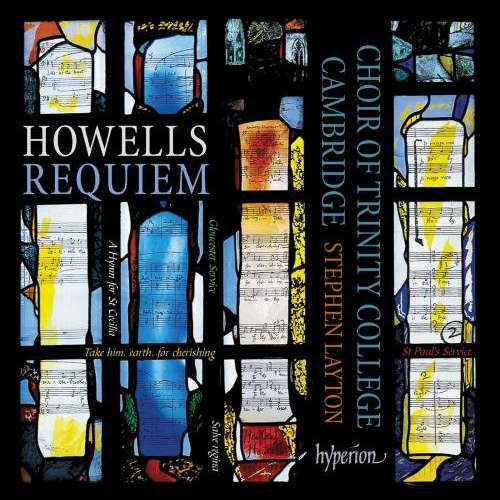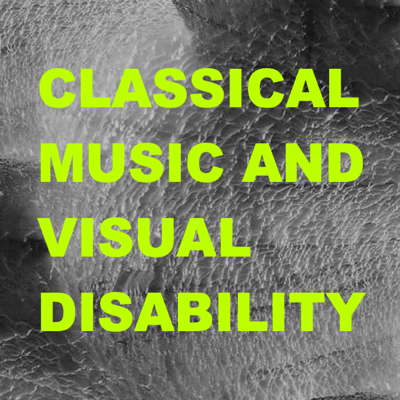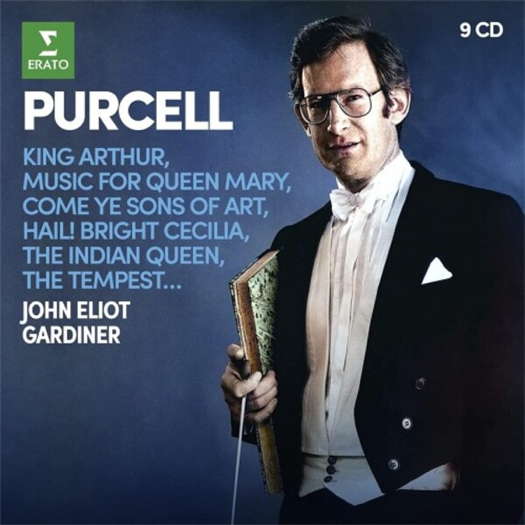 DISCUSSION: John Dante Prevedini leads a discussion about Composers, individuals or collective?, including contributions from David Arditti, Halida Dinova, Robert McCarney and Jane Stanley.
DISCUSSION: John Dante Prevedini leads a discussion about Composers, individuals or collective?, including contributions from David Arditti, Halida Dinova, Robert McCarney and Jane Stanley.
 SPONSORED: CD Spotlight. Beautifully Apt - Choral music by Herbert Howells, heard by Robert Anderson.
SPONSORED: CD Spotlight. Beautifully Apt - Choral music by Herbert Howells, heard by Robert Anderson.
All sponsored features >>
 PODCAST: John Dante Prevedini leads a discussion about Classical Music and Visual Disability, including contributions from Charlotte Hardwick, Robert McCarney, Halida Dinova and Giuseppe Pennisi.
PODCAST: John Dante Prevedini leads a discussion about Classical Music and Visual Disability, including contributions from Charlotte Hardwick, Robert McCarney, Halida Dinova and Giuseppe Pennisi.

Simply Outstanding
John Eliot Gardiner's nine CD Purcell set, strongly recommended by GERALD FENECH
'... renditions out of the ordinary, where Gardiner's expressive ardour and unbridled intensity allow him to reveal all the gracefulness, subtlety, pathos and nobility of Purcell's uniquely human music.'
Henry Purcell (1659-1695) was one of the most versatile and imaginative composers of the late seventeenth century. His life and work in London were closely tied to the political and social changes under the reign of three monarchs: Charles II, his brother James II and William of Orange (William III). Celebratory odes for royal occasions are a significant part of Purcell's legacy, which also includes anthems for the coronation of James II and funeral music for Queen Mary (Mary II). Yet he was as much in demand in the theatre and in domestic music-making as in the church.
Much of Purcell's early life is obscure; indeed, his date of birth is not written in stone, as we do not know the exact day. It is surmised to be 10 September 1659, but nothing is certain. Even his precise parentage is shrouded in doubt.
He became a chorister with the Chapel Royal, where he would have been greatly affected by the revival in church musical life that accompanied the restoration of the monarchy in 1660. Composers forced into semi-retirement during Oliver Cromwell's period of power returned to the forefront of musical life in London. Moreover, the King liked the kind of church music which he had learned while in exile in France, and ordered its imitation in the resurrected places of worship.
Purcell's first appointment was at court. It was not his only place of work, however, and he became organist at Westminster Abbey in 1679. In Purcell's day few composers wrote exclusively sacred or secular music. The close juxtaposition of church, theatre and domestic music-making led composers to diversify, and encouraged stylistic cross-fertilisation. Although Purcell's earliest music was for the church, he also composed a set of Fantasias for viols, which were notably old-fashioned by the late 1670s and may well have been written to demonstrate his mastery of older styles.
Court and church reorganisations under James II and William III meant that Purcell's later energies were largely devoted to the theatre. The earliest of these scores was for Theodosius, presented at the Dorset Gardens Theatre in 1680, for which Purcell composed nine numbers. In 1689 Purcell's opera Dido and Aeneas was presented at a girls' school in Chelsea, although recent research suggests this was not the first performance. Some numbers from the score have been lost, but this work revealed that English words could be as aptly set to through-composed music as Italian or French. It also showed that Purcell had a special skill for sustained yet condensed characterisation.
Listen — Purcell: Dido's Lament (Dido and Aeneas)
(0190296416231 CD9 track 11, 2:19-3:06) ℗ 2022 Parlophone Records Ltd :
Purcell's theatrical music of the 1690s is dominated by his masques and semi-operas. These were so called because only minor characters sang in the theatre, meaning that Purcell's dramatic skills could not be deployed for heroic characterisations. But the musical parts for the lesser characters were often extensive, and the instrumental and vocal music for Dryden's King Arthur (1691) and The Fairy Queen (1692) displays Purcell's vivacity.
Listen — Purcell: Woden, First To Thee (King Arthur Act I)
(0190296416231 CD1 track 4, 0:00-0:59) ℗ 2022 Parlophone Records Ltd :
The composer's unique word-setting would later influence such great names as Handel, and even Britten in the twentieth century.
Purcell continued to compose profusely for the church, and among his large output one finds a substantial number of Odes. These are in effect small cantatas for soloists, chorus and orchestra, and the majority were written for royal or state occasions. But it is the music that he wrote for a saint, rather than a monarch, that stands out. One of Purcell's most brilliant creations, the 1692 Hail! Bright Cecilia remains to this day a favourite with singers and audiences alike.
Listen — Purcell: Hail! Bright Cecilia (Hail! Bright Cecilia)
(0190296416231 CD4 track 13, 0:00-0:52) ℗ 2022 Parlophone Records Ltd :
Another moving church work was the 1695 Music for the Funeral of Queen Mary, a truly poignant piece that was used afresh later that year for Purcell's own funeral. Legend has it that he returned late one night to find that his wife had locked him out, whereupon he contacted a fatal dose of pneumonia. Another story suggests that he was one of a number of Londoners to be poisoned by a contaminated shipment of chocolate. Whatever the case, Purcell died on 21 November 1695 at the young age of thirty-six, leaving for posterity a goldmine of inestimable beauty that shines ever so brightly as time rolls by.
Listen — Purcell: Man That Is Born of a Woman (Funeral Sentences)
(0190296416231 CD3 track 11, 0:00-0:50) ℗ 2022 Parlophone Records Ltd :
This exhilarating nine CD set focussing on John Eliot Gardiner's recordings of some of Purcell's greatest music is more than welcome. It's so hard to describe the music of this great master of the English Baroque, because it has everything: original inventiveness, harmonic ingenuity, melodic richness, and above all, natural warmth and colour. Indeed, Purcell never falls into superficiality, which was one of the great baroque temptations, but is always consistent with the spirit of the piece he is composing. If it's a dance, then let it be so. If it's a reflective piece, let the soothing light of serenity come forth.
Listen — Purcell: No Stars Again Shall Hurt You (The Tempest Act V)
(0190296416231 CD8 track 19, 4:47-5:30) ℗ 2022 Parlophone Records Ltd :
The programme covers a wealth of unforgettable masterpieces in the form of five theatre works, namely: King Arthur, Timon of Athens, Dioclesian, The Indian Queen and The Tempest, two Odes: Come ye Sons of Art and Hail! Bright Cecilia, the Music for the Funeral of Queen Mary, and lastly, music from the original movie soundtrack England, my England by Tony Palmer.
John Eliot Gardiner is famous for his interpretations of the Baroque on original instruments, and this splendid collation should further enhance his reputation, especially with those who are coming to these recordings (made between 1976 and 1987) for the first time. Indeed, these are renditions out of the ordinary, where Gardiner's expressive ardour and unbridled intensity allow him to reveal all the gracefulness, subtlety, pathos and nobility of Purcell's uniquely human music. Also, in Gardiner's hands, the florid ornamentation of these scores is brought out with pristine clarity. Simply outstanding with a capital O. Strongly recommended.
Copyright © 29 April 2022
Gerald Fenech,
Gzira, Malta

CD INFORMATION: PURCELL - JOHN ELIOT GARDINER
ARTICLES ABOUT SEVENTEENTH CENTURY MUSIC


